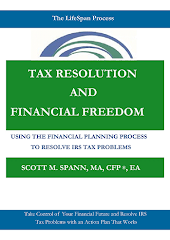It doesn’t take much these days to damage a credit score. Before the recession, late payments and blasting through credit limits would take its toll. But in the past year, Fair Isaac, the company that developed the algorithm that is the leading determinant of our scores, made an important change in its formula.
It’s now putting much more emphasis on the size of your balances and how close they are to your total credit limit. It’s a behavior trigger that creditors see as a bigger worry than ever. So the best thing you can do for your credit score is to get your balances down to under half of your credit limit.
Even better, pay them off entirely and use them only when you know you can pay them off at the end of the month. Inactive accounts will ding your credit score, but quick payments can only help.
The latest revision in the FICO system will actually allow a bit of lenience on late payment – something that might affect more than a few consumers with the downturn in the economy. Obviously, this won’t mean that someone can chronically pay late, but once or twice won’t make the same impact as in earlier FICO versions.
Yet credit utilization – the amount of credit you’re actually using relative to your credit limit – is a much bigger deal simply because high balances are still prevalent among consumers. From the lender’s perspective, high balances mixed with a tough economy means a higher risk of default among customers.
So, one more time. What’s a good target utilization rate for all your revolving credit accounts? No more than 50 percent of your credit limit, and if you can get it significantly lower than that over time, that’s a good plan. The lower your credit utilization, the better your score.
What does that mean for ordinary Americans who don’t meet that under-50 percent goal? It means you shouldn’t be applying for new credit or refinancing for awhile, and that includes something as innocuous as a department store charge.
So maybe that means deferring gratification for awhile until you get things under control. But look at it this way – you can use this time as a way to develop more knowledge about credit and be in a better position long-term. Here are some things you need to know:
You’ll need at least a 740 score for the best rates: You’ll often hear that credit scores of 700 and up will get you best customer status with lenders. That’s true, but you need to aim significantly higher. For the lowest rates and best terms, you need to get your credit score above 740 (the top credit score, by the way, is 850), so keep that target in mind.
Budget: If you’ve never reviewed your spending and picked out areas where you can cut, you’ve never done a budget. Start tracking your spending either on paper or with financial planning software and start pinpointing what spending you can shift over to paying off debt.
Get some advice: Remember that debt is just one part of your overall financial picture. It might not be a bad time to sit down with a financial planner to talk about your debt issues, planning for retirement, your kids’ college education and any other key financial goals.
Monitor your credit reports: Remember that you have the right to get all three of your credit reports -- from Experian, TransUnion and Equifax -- once a year for free. You can do so by ordering them at www.annualcreditreport.com. Order them individually at different points in the year. That means you’ll get an extended picture of how your credit picture looks because the three bureaus feed each other the latest information. You’ll also be able to clean up errors as you find them -- errors can drag down a credit score – and you’ll also keep an eye on identity theft. Oh, and make sure you use the site above and avoid the businesses that use “free credit report” in their title. It’s easy. If they ask for your credit card number, don’t do business with them.
Make electronic payments: Electronic bill payment will allow you to save on postage while guaranteeing on-time payment, and the budgeting advice mentioned above will allow you to put a few more bucks toward getting that loan or credit card bill paid off. It’s important to always pay more than the minimum payment on your bill – otherwise your balance will barely move.
July 2010 — This column is produced by the Financial Planning Association, the membership organization for the financial planning community, and is provided by Scott M. Spann, CFP(R), EA, a local member of FPA.
Thursday, July 8, 2010
Keeping Your Credit Score Healthy
Labels: tax resolution, financial plan, tax debt
credit score,
financial planning
Subscribe to:
Comments (Atom)




